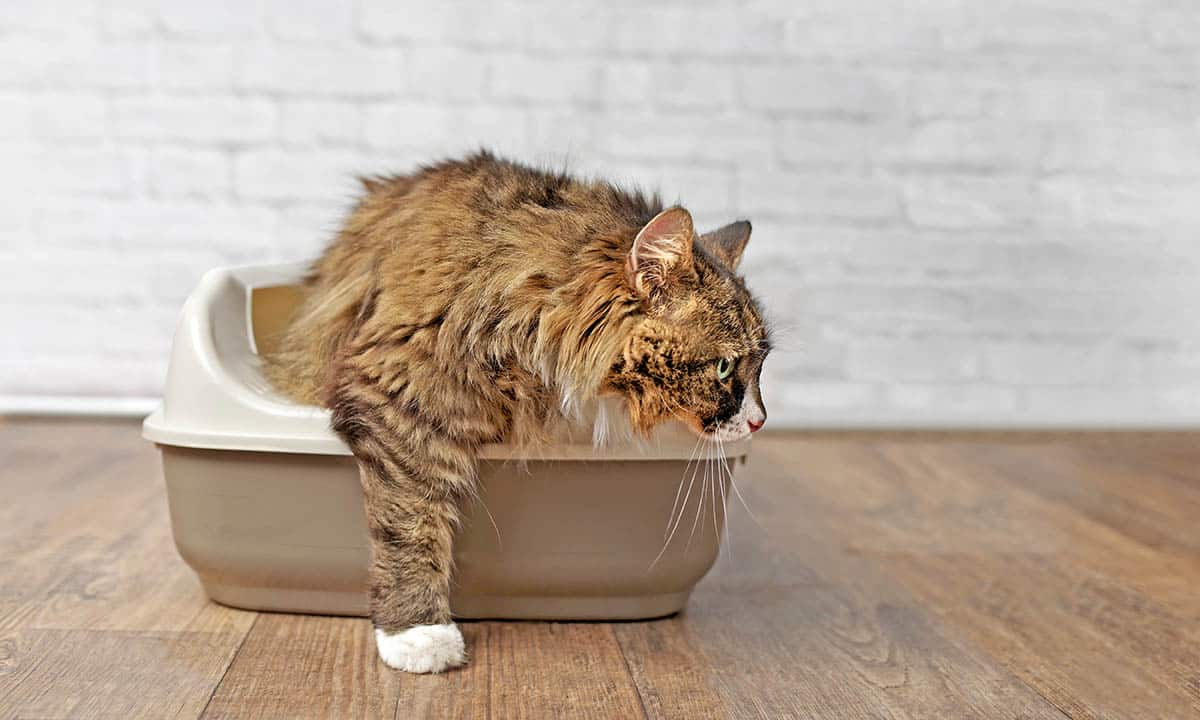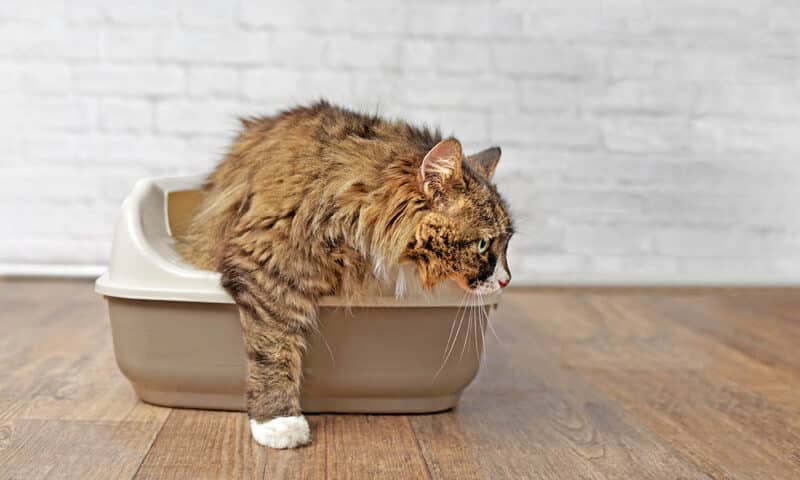It’s natural to worry if you find blood in your cat’s poop. After all, we’re primed to assume that blood is a sign that something is wrong! The good news is that there are many relatively unserious reasons your cat might have blood in their stools.
Does Blood in My Cat’s Stools Mean They’re Sick?
Not always, but you should err on caution regarding your pet’s health. While many of the causes of bloody stools are relatively mild and will clear up on their own—like stress—some other reasons can be life-threatening if left untreated, like pancreatitis, toxicity, or cancer.
With something like bloody stools, it’s best to have a veterinarian assess your cat’s health. They will have a more comprehensive view of both the symptoms your cat is experiencing and your cat’s typical behaviors and statistics since they have access to your cat’s health records and knowledge of what healthy looks like for your cat.

The 11 Reasons Why Your Cat May Have Bloody Poop
1. Anxiety
Stress and anxiety can both influence your cat’s stool consistency. Significant life events such as moving house or nearby construction work can leave your cat’s gastrointestinal tract irritated and upset. Anxiety and stress are the most benign causes of blood in the stools. Anxiety and stress can cause severe gastrointestinal upset in cats, leading to bloody stools.
If you’ve recently undergone significant life changes or a compelling reason why your cat might be more anxious than usual, you can probably write it off as indigestion.
However, you should continue to monitor your cat for any signs that the bloody stools represent a significant health issue. It’s better to be safe than sorry.
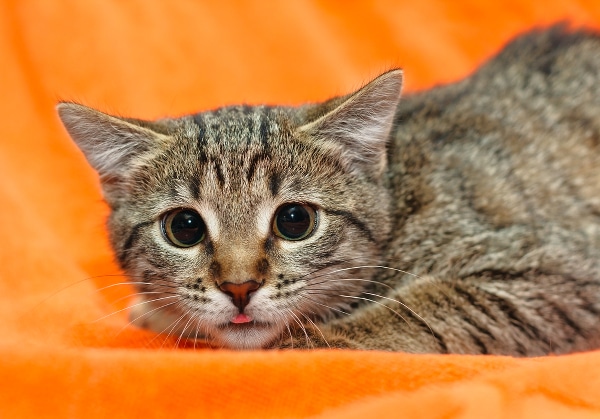
2. Change in Diet
Changing your cat’s diet can also cause them to start pooping blood. Cats are creatures of habit, and their bodies will get used to processing the food you give them. Suddenly changing your cat’s diet could cause them severe gastrointestinal upset as their body isn’t prepared for the new food composition.
Following food mixing guidelines for swapping your cat’s food can help keep them healthy and happy in the long term and prevent mishaps with their digestive system.
3. Eating Something Toxic or Inedible
Your cat might also experience bloody stool if it consumes something it shouldn’t have. Whether they have a gastric blockage or have eaten something toxic, a veterinarian best handles these situations as there can be more internal damage than meets the eye.
See if you can determine what your cat might have eaten; this way, your veterinarian can go into the treatments with an idea of what’s causing your cat’s condition. In severe cases, cats may require surgical intervention to remove the foreign object from the cat’s gastrointestinal tract.
4. Infection
Gastrointestinal infections can cause your cat to start pooping blood. The treatment and its invasiveness vary by what kind of infection your cat has caught.
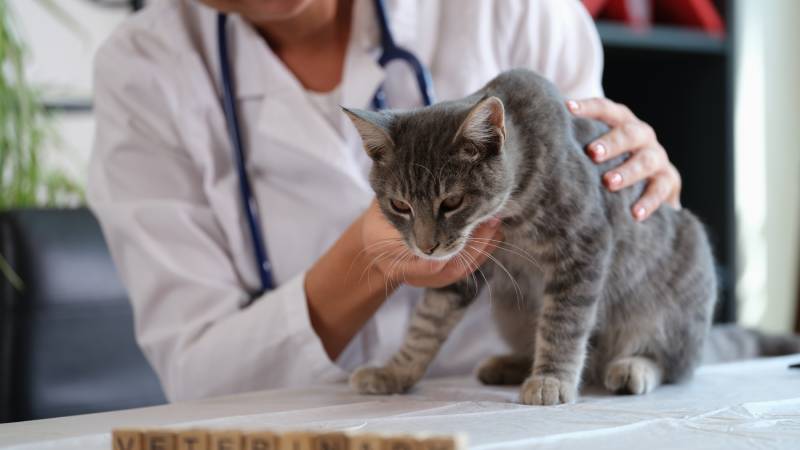
5. Parasites
Gastric parasites can also cause your cat to start pooping blood. The treatment varies based on the parasite your cat hosts, just like with infections.
6. Reaction to Medication
Some medications can also cause gastric bleeding. Contact your veterinarian if your cat has recently started taking a new drug, as this could cause your cat’s bathroom woes.
7. Anal Gland Issues
Usually, a cat’s anal glands are expressed when they defecate, but build-up in the anal glands or other issues in that area can cause your cat to start pooping blood. If your cat has chronic problems with its anal glands, you might want to take them to a professional pet groomer to have its anal glands expressed manually or consider dietary management.
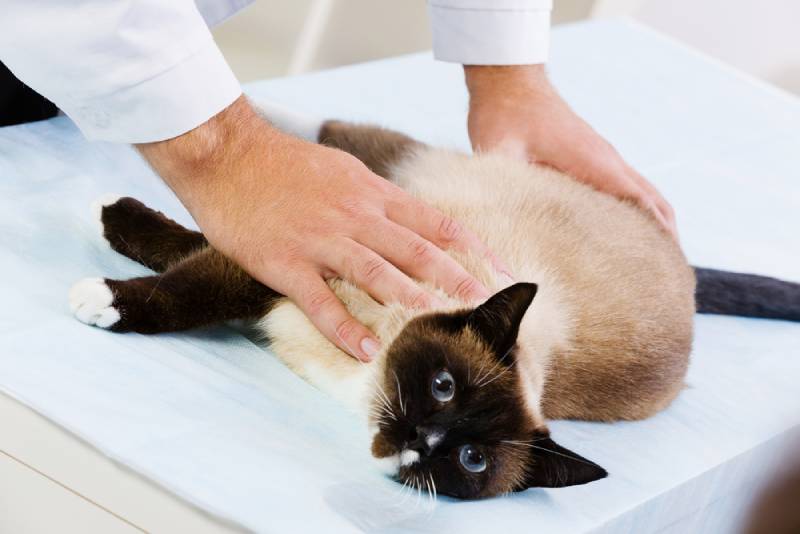
8. Colitis
Inflammation of the large intestine, or colitis, can cause your cat to start pooping blood. This kind of illness should be overseen by a veterinarian familiar with your cat’s typical behavior and diet to ensure that they have a comprehensive view of your cat’s condition.
9. Pancreatitis
This condition is relatively severe, even though it can be treated and cleared up with no long-term effects. If pancreatitis is not treated effectively in time, the pancreas can shut down and lead to diabetes in cats—where the pancreas does not produce enough insulin to break down the nutrients in their food into energy. Cats with diabetes will experience high blood sugar levels following meals and could become ill or die if not treated.
10. Toxicity
Toxicity occurs when a cat consumes a toxic substance and constitutes an emergency. The first order of business is to figure out what your cat has eaten. Contact the veterinarian immediately if you are unsure whether your cat has consumed a poisonous substance. It’s better to treat a benign situation as a possible emergency than to treat an emergency as harmless.
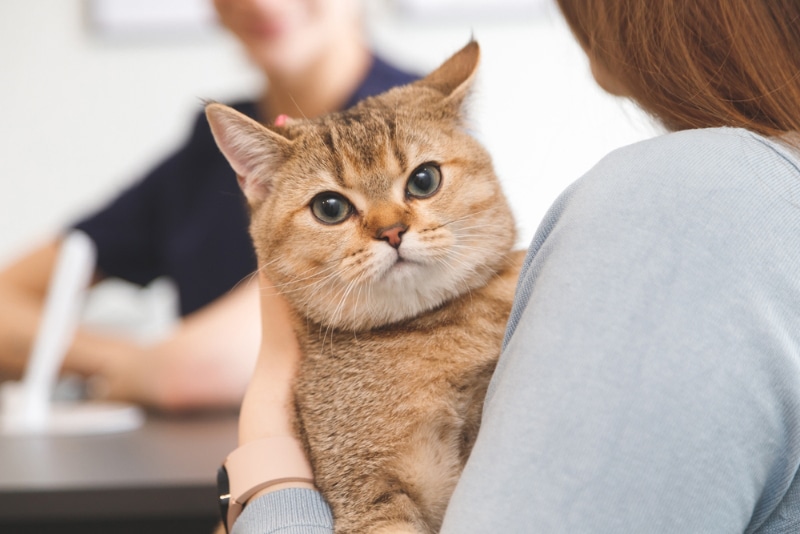
11. Cancer
Cats with cancer may also start pooping blood, depending on where the tumor is located. If your cat has been pooping blood for a few days and is beginning to decline, you want to check with your veterinarian to rule out cancer as a possible cause for your cat’s troubles.

My Cat Is Pooping Blood But Has No Other Signs. Are They Okay?
It’s important to remember that cats are exceptionally good at hiding symptoms of illnesses. This biological defense mechanism prevents them from being picked on by other cats and predators when they’re ill. Look for other more subtle signs of disease when determining whether your cat needs medical attention, like hiding and loss of appetite. However, it is always better to err on caution regarding our cats’ health!
Final Thoughts
It can be scary for your cat to start pooping blood. Luckily, there are plenty of benign reasons this might be occurring. Still, it would help if you had your cat checked out by a veterinarian to ensure that they aren’t seriously ill, as this sign is present in a wide range of illnesses that range from benign to deadly.
Featured Image Credit: Lightspruch, Shutterstock
Contents
- Does Blood in My Cat’s Stools Mean They’re Sick?
- The 11 Reasons Why Your Cat May Have Bloody Poop
- 1. Anxiety
- 2. Change in Diet
- 3. Eating Something Toxic or Inedible
- 4. Infection
- 5. Parasites
- 6. Reaction to Medication
- 7. Anal Gland Issues
- 8. Colitis
- 9. Pancreatitis
- 10. Toxicity
- 11. Cancer
- My Cat Is Pooping Blood But Has No Other Signs. Are They Okay?
- Final Thoughts

